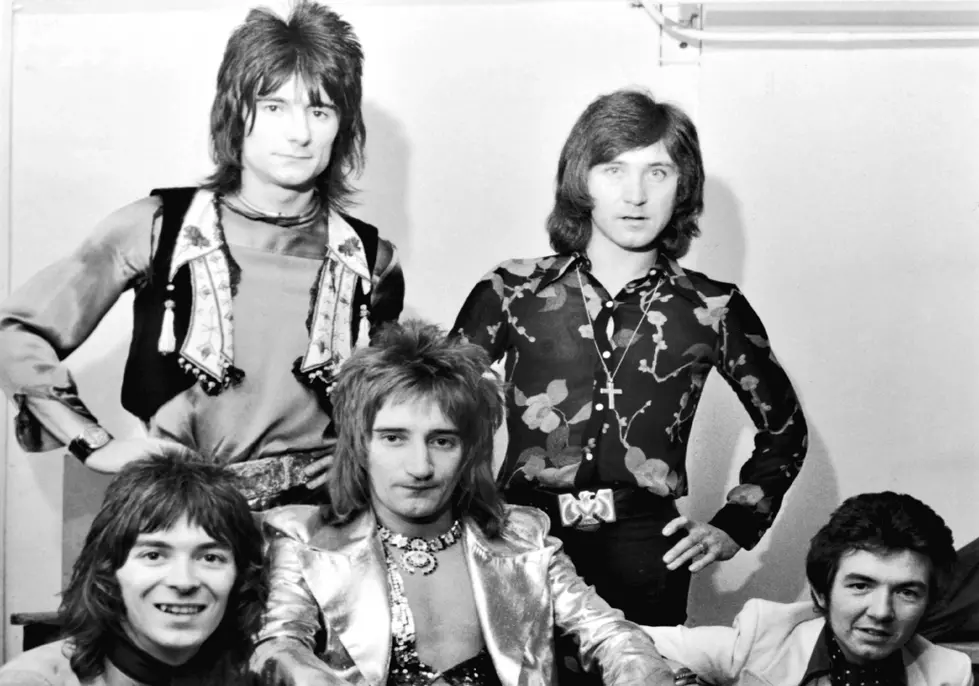
The Roots of Indie: Jimmie Rodgers
Some things are simply lost to time. Who invented the wheel? What mad genius first chipped chocolate and stuck it into a cookie?
As for country music, though, we know who the daddy is: The Singing Brakeman, the Blue Yodeler, Jimmie Rodgers.
I know what you're thinking, and you're right: Hillbillies were singing on porches long before Rodgers laid down his first side. Fieldhands were hollering, too, and folks were raisin' their voices between the preachin' down at the church, too. With all that music, how can Rodgers' fans bestow upon him the lofty title of Father of Country Music?
Let's start at the beginning. Rodgers was born in Meridian, Miss. in 1897, six years before the Wright Brothers made the first powered flight. His father worked on the railroad, and he occasionally took his son to work with him. Nicholas Dawidoff lays it out like this in his must read book, 'In the Country of Country: A Journey to the Roots of American Music:'
Sometimes Aaron Rodgers took his son with him out to the tracks and put him to work bringing water to the black work crews who repaired worn ties....These men, known as "gandy dancers," toiled when they moved their tamping picks and spike mauls in unison. One way they kept themselves aligned was by singing in rhythm.
One doesn't have to try hard to imagine what an impact hearing this had on a musically minded young boy:
And music-minded he was. By the time Rodgers hit his teens, he'd run off twice to start his own traveling show, only to be dragged home by his father. He spent his time kicking around the railroad and in the Meridian saloons, learning songs and guitar licks from drunks, gamblers, hobos -- anybody and everybody. He held a variety of jobs, most with the railroad, which is where he picked up the nickname, the Singing Brakeman.
All of that work, travel and life experience exposed Rodgers to a diverse assortment of music. Dawidoff continues:
A persistent fiction holds that country music is of pure white, Southern, rural origins. In fact, right from its commercial beginnings, country was a hybrid form conflating many extant styles of popular and religious music with whatever individual innovations people like Rodgers brought to it. By writing songs that drew from the full spectrum of music that he knew, Rodgers was creating a truly American music and setting a precedent that would be followed by a number of the most progressive and influential figures in country music history.
A tuberculosis diagnosis freed Rodgers to pursue music full time. Declared unfit for the railroad, Rodgers headed up to Asheville, North Carolina, where he secured a weekly gig on radio station WWNC.
A few months later, Ralph Peer, a talent scout for the Victor Talking Machine Company, set up camp not too far up the road in Bristol, Tennessee. Rodgers decided to give it a shot and headed up to see if he could make a record. The Carter family showed up, too -- the legendary first family of country music, though at that time they were just some folks hoping to make a record.
Rodgers cut two songs that day: 'The Soldier's Sweetheart' and 'Sleep, Baby, Sleep,' and went home with a hundred bucks in his pocket.
On Aug. 4, 1927 in Bristol, Tenn., the duality of country music was established. On one side there's the family-oriented spirituality of the Carter family, and on the other the lonely, sometimes rowdy sound of the rugged individualist. Some of Rodgers' songs were flat out raunchy by the era's standards, which was nothing new for the blues but was a surprise to white audiences. In 'T for Texas' (or 'Blue Yodel No 1'), Rodgers brags, "I can get me more women than a passenger train can haul," for example:
Those Bristol recordings sold OK, but they were just the beginning. During the Depression, Rodgers sold millions of records "when, as the old saw has it, the typical Southern shopping list was a pound of butter, a slab of bacon, a sack of flour, and the new Jimmie Rodgers record," writes Dawidoff.
The connection between artist and audience was no different then than it is now: Rodgers wrote from personal experience, and in the specific he struck on the universal. He sang about things that his fans could relate to: struggle, loss, love, drinking, dancing. Perhaps nowhere is this more apparent than on "TB Blues." Tuberculosis was endemic in the early 20th century. Dawidoff notes that during live performances, audiences would yell "Spit 'er up, Jimmie, and sing some more," referring to the blood that floods a TB sufferer's lungs.
So Rodgers was literally singing about dying while performing live for an audience, some of whom were dying themselves. That gives the line "When it rained down sorrow, it rained all over me" quite a punch:
Tuberculosis finally got the best of the Singing Brakeman in 1933, when he was just 35. His singing career lasted less than six years. He recorded his last song, 'Years Ago,' just two days before he passed:
What can I say about influence? Without Jimmie Rodgers there's no Hank Williams, Merle Haggard, or Johnny Cash; heck, there's no country music. And without country music, there's no alt-country -- no Jeff Tweedy, Uncle Tupelo, or Son Volt. Phosphorescent's brilliant album, 'To Willie,' could just as easily be named 'To Jimmie, Twice Removed.'
Jimmie Rodgers was the man who chipped the country chocolate, and damn is it delicious.
More From Diffuser.fm









